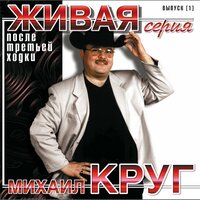| Мой сосед (original) | Мой сосед (translation) |
|---|---|
| Сосед мой как хлебнёт вина всё говорит: «Война, война…» и сколько жизней | My neighbor, as soon as he takes a sip of wine, keeps saying: "War, war ..." and how many lives |
| унесло и не сложилось. | carried away and did not work out. |
| А День Победы подойдёт — наденет ордена и пьёт, и плачет тихо, вспоминает, | And Victory Day will come up - he will put on orders and drink, and cry quietly, remembers |
| как им жилось. | how they lived. |
| Как помнит мать, черты лица и похоронку на отца, и как в шестнадцать убежал на | As his mother remembers, the facial features and the funeral for his father, and how at sixteen he ran away to |
| фронт с Витюхой, | front with Vityukha, |
| Как Витька крикнул: «Вперёд, за…» и разорвало на глазах, а хоронила | How Vitka shouted: "Forward, for ..." and tore up before my eyes, and buried |
| незнакомая старуха. | unfamiliar old woman. |
| И как лежал в госпиталях, комбат как умер на руках и как контузило в апреле под | And how he lay in hospitals, how the battalion commander died in his arms and how he was shell-shocked in April under |
| Берлином. | Berlin. |
| Как в детстве змея запускал, в войну с мальчишками играл и как зимой крючком | How in childhood he launched a snake, played war with boys and how to crochet in winter |
| цеплялся за машины. | clung to cars. |
| В войну играл — как будто знал: подрос чуть-чуть — на фронт попал. | I played in the war - as if I knew: I grew up a little - I got to the front. |
| Война из детства здорово в жизни пригодилась. | The war from childhood came in handy in life. |
| А многие по одному играли до войны в тюрьму, их очень мало со штрафбата | And many played one by one before the war in prison, there are very few of them from the penal battalion |
| возвратилось. | returned. |
| Он вспоминал, когда пришёл, мать приготовила на стол два огурца солёных, | He recalled that when he came, his mother prepared two pickled cucumbers on the table, |
| сахар и горбушку. | sugar and humpback. |
| Как плакала в пустой рукав и всё смотрела, губы сжав, как он одной рукой пил из | How she cried into an empty sleeve and watched everything, pursing her lips, as he drank from |
| отцовской кружки. | father's mug. |
| Потом пришла Витюхи мать, и Витьку стали поминать, как ей отдал Витюхин | Then Vityukha's mother came, and they began to commemorate how Vityukhin had given her |
| старенький кисет. | old pouch. |
| Она ушла домой в слезах, кисет к груди рукой прижав, и всё горел в её окне | She went home in tears, pressing her hand to her chest, and everything burned in her window. |
| полночный свет. | midnight light. |
| И уложив его в кровать, всю ночь сидела рядом мать, потом пошла стирать на | And having put him to bed, his mother sat next to him all night, then she went to wash on |
| речку гимнастёрку. | river gymnast. |
| Хлыстом хлыстнул вдали пастух, за речкой сипло пел петух, взлетев на ржавый | A shepherd whipped in the distance, a rooster crowed hoarsely across the river, flying up on a rusty |
| бензобак тридцать четвёрки. | gas tank thirty-four. |
| Зачем же пьёт уж столько лет безрукий ветеран-сосед, и нафталином пахнут звёзды | Why has the armless veteran neighbor been drinking for so many years, and the stars smell of mothballs |
| и медали? | and medals? |
| Стоит у Волги обелиск, на батьку похоронный лист, и улыбается на фото главком | There is an obelisk near the Volga, a funeral list for the father, and the commander-in-chief smiles in the photo |
| Сталин… | Stalin... |
Translation of the song lyrics Мой сосед - Михаил Круг

Song information On this page you can read the lyrics of the song Мой сосед , by -Михаил Круг
In the genre:Шансон
Release date:01.09.2014
Song language:Russian language
Select which language to translate into:
Write what you think about the lyrics!
Other songs by the artist:
| Name | Year |
|---|---|
| 2017 | |
| 2017 | |
| 2013 | |
| 2017 | |
| 2017 | |
| 2017 | |
| 2015 | |
| 2017 | |
| 2017 | |
| 2017 | |
| 2017 | |
| 2017 | |
| 2017 | |
| 2017 | |
| 2017 |